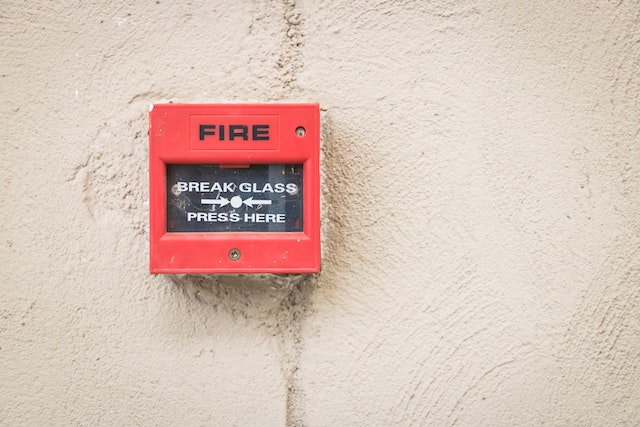
In large residential buildings and commercial premises, a single fire alarm is not enough to keep everyone safe. Installing interlinked fire alarms is not only a legal requirement, but the best way to ensure you are made aware of any potential hazards as quickly as possible.
In this blog post, we’ll explain the importance of interlinked fire alarms and break down the most recent guidance to help you ensure your premises are protected in line with the law.
What are interlinked fire alarms?
Put simply, interlinked fire alarms are fire, smoke, heat or carbon monoxide (CO) detectors that are linked to each other. So when one alarm goes off, they all go off.
How do interlinked fire alarms work?
Interlinked fire alarms are connected via radio-frequency signals. No wires are required to link them.
Interlinked fire alarms can either be battery operated or mains powered. Battery-operated alarms don’t need any wiring at all, whereas mains-powered detectors typically require a 230V supply.
How many interlinked fire alarms do I need?
Under the Fire Safety Act 2021, all ‘non-domestic premises’ in England and Wales (including buildings that house two or more domestic premises, e.g. a block of flats) must be subjected to a regular fire risk assessment.
The person responsible for conducting this risk assessment—for example, the landlord or employer—must “make sure there is a way to detect fires and that this raises an alarm to alert everyone to evacuate”. The Fire Safety Act does not specify the number of alarms required, so it falls to the Responsible Person to assess the situation and ensure that there is a sufficient fire alarm system in place.
There are additional regulations in place for rented properties. Since December 2022, it has been a legal requirement for all rented properties in Wales to have at least one working smoke alarm on every floor. All of these alarms must be interlinked and hard-wired. It is also recommended (but not compulsory) for the landlord to add an additional heat alarm in the kitchen.
Carbon monoxide alarms also need to be installed in all rooms that feature a fuel-burning appliance. However, this excludes gas cookers. CO detectors do not need to be interlinked and can be battery powered.
Our experienced engineers are qualified to design and install fire alarm systems for a wide range of different premises. We are BAFE registered, so you can trust our expertise.
Fire Alarm Systems Request a Quote